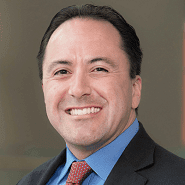
Aaron Miri, SVP & Chief Digital and Information Officer, Baptist Health
One of the many effects of the Covid-19 pandemic has been a dramatic shift in the way people approach their professional careers. Rather than suffering in silence, those who don’t feel fulfilled are running toward the exit, in record numbers.
According to the Bureau of Labor Statistics, “the number of Americans quitting their jobs in any given month hovers near all-time highs, and job openings across the country hover around 10 million” (The Business Journal). In November of 2021, a record 3.5 million resignations were reported, with healthcare being one of the hardest hit industries.
This comes as no surprise to CIOs and other leaders, many of whom are scrambling to recruit and retain top talent. With tight margins to consider, competing with tech and other lucrative verticals is out of the question, prompting more organizations to rely on hybrid and remote work models as an incentive.
With these new models, however, comes a new set of challenges – one of which is ensuring teams are utilizing PTO and taking time to recharge. This, as many employers are finding, is easier said than done. According to a survey by software firm Skynova, despite the fact that nearly 39 percent of employers have increased the amount of PTO offered, the majority (around 64 percent) of employees say they “sometimes or often avoid taking time off because they feel they are unable to do so.”
The result is a disconnect that has left many feeling frustrated, to put it mildly. For healthcare leaders, it has upped the ante when it comes to ensuring IT, clinical, and security staff are able to maintain balance in their lives.
The big question, of course, is how? To that end, healthsystemCIO reached out to a handful of influential leaders to get their thoughts on how they’re working to improve the outlook (including how they model healthy behaviors)
This week, Aaron Miri, Chief Digital & Information Officer at Baptist Health, shares his perspective.
When you take time off, are you able to disconnect completely, or do you tend to check in?
I am able to better disconnect these days, yes. Do I totally disconnect? No, but that’s par for the course. I do employ the tactic of routine disconnecting (example: not allowing cell phones at the dinner table with the family, etc.) to ensure I am giving full focus to what really matters in life, which are the people. Further, outside of an interesting leadership or interesting technology article, I try not to email my team members on the weekend or bother them with afterhours phone calls. At the end of the day healthcare is about people; if you’re a workaholic, then they will emulate that and suddenly you have a frazzled and unhappy team.
Have your habits changed since Covid – and the ensuing spike in hybrid/remote work models?
I have always been a believer in hybrid and remote work models when the situation allows for it. A good manager can manage their people and the work regardless of location. If you hire appropriately and trust those who work for you, does it really matter if they like to start super early in the morning and be done by midafternoon, so they can get to their kid’s soccer practice? The reality is that those who work in hybrid or remote environments tend to work more hours (you might start first thing in the morning and the next thing you realize it’s 6 p.m. and you haven’t eaten lunch). I actually think it may be harder to disconnect being fully remote as you don’t have natural interruptions (hallway conversations, someone popping into your cubicle for a quick chat about last night’s football game, etc.). And so, it’s important to manage your calendar and build in 15-minute breaks.
Do you encourage your team to disconnect on vacation, or does it depend on the situation?
I fully encourage my team to disconnect while on PTO. My line to them is this: enjoy your time that you’ve earned. If something truly catastrophic happens, I’ll call them. Otherwise, I don’t want to see or hear from them. In fact, I’ve been known to ask team members who hop on a virtual meeting while on PTO to leave the meeting. We get one shot at this beautiful thing called life, and while it’s a tremendous honor to serve others within healthcare; life wasn’t made to be completely about your work.


Share Your Thoughts
You must be logged in to post a comment.